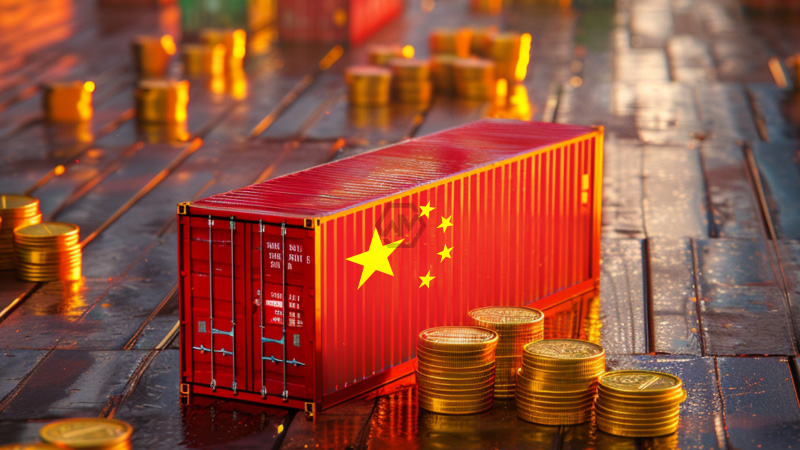- China imposes steep 84% tariffs on U.S. imports, escalating trade war fears.
- U.S. stock futures drop sharply but recover slightly by mid-morning.
- Safe-haven currencies like the yen and franc surge as investors flee risk.
China’s aggressive retaliatory move to slap 84% tariffs on U.S. goods has sent shockwaves through global financial markets. The response, following President Trump’s sweeping universal tariffs, has heightened fears of a deepening trade war. This could stall global economic growth.
While equity markets stumbled, traditional safe havens saw inflows. The Swiss franc and Japanese yen strengthened considerably, signaling broad investor anxiety. Meanwhile, bond yields eased after a recent spike, reflecting a move into safer assets.
Trade War Tensions Spike: Wall Street Wavers, China Strikes Back
China’s dramatic tariff hike is a direct response to the U.S.’s aggressive protectionist measures. It marks a turning point in already fragile trade negotiations. The move signals a breakdown in diplomatic backchannels. This raises the likelihood of prolonged economic friction between the world’s two largest economies.
The stock market’s initial reaction was swift. Dow and S&P 500 futures tumbled. Nasdaq futures also dipped but showed resilience thanks to the relative strength of tech stocks. Although the markets regained some footing by midday, volatility remains high. Traders brace for possible additional measures from both countries.
Currencies reflected investor nervousness, with the Japanese yen and Swiss franc gaining sharply. These haven assets tend to benefit during geopolitical turmoil. Today’s movement reinforces the sentiment that global investors are taking defensive positions amid rising uncertainty.
Meanwhile, in India, economic projections offered a mixed picture. The RBI trimmed its growth forecast slightly and projected inflation at a stable 4% for FY26. With forex reserves solid at $676.3 billion, India appears insulated for now. However, it remains cautious about ripple effects from global instability.
As trade tensions escalate, markets are entering a phase of heightened uncertainty. Investors are shifting toward safety and bracing for policy shifts and prolonged volatility.
“When elephants fight, it is the grass that suffers.” – African Proverb



